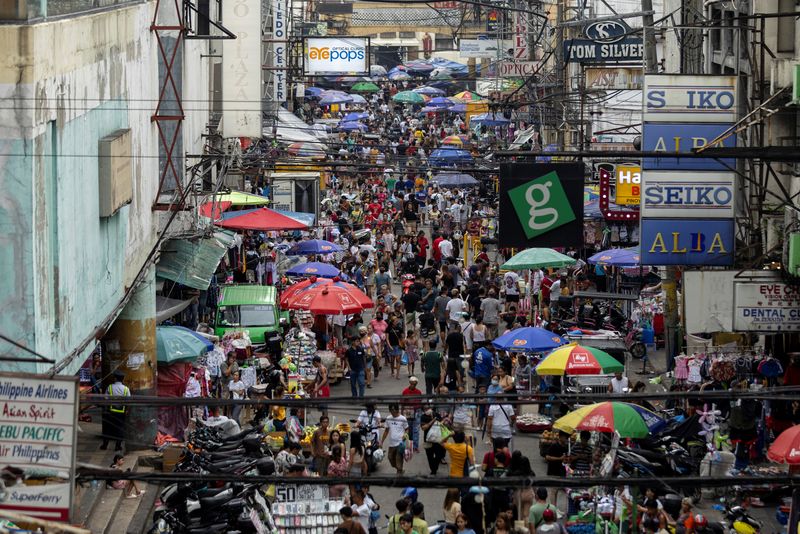© Reuters. People walk along a street market in Quiapo, in Manila, Philippines, July 11, 2023. REUTERS/Eloisa Lopez/File Photo
By Neil Jerome Morales and Mikhail Flores
MANILA (Reuters) – The Philippine central bank reinforced its hawkish stance on Tuesday despite slower annual inflation in January, as policymakers remain wary that the El Nino impact could lift consumer price growth above its target in the second quarter.
The consumer price index rose 2.8% in January, the least since October 2020, the Philippine Statistics Authority said, from a 3.9% gain in December. That was below the 3.1% forecast in a Reuters poll, and was the second consecutive month that the pace of price increases fell within the central bank’s 2% to 4% target range.
Core inflation, which strips out volatile food and energy costs, slowed to 3.8% in January from 4.4% in the previous month.
“The balance of risks to the inflation outlook still leans significantly towards the upside,” the Bangko Sentral ng Pilipinas (BSP) said in a statement, citing upside risks that could potentially stem from higher food prices due to El Niño, and an increase in the cost of transport, electricity and oil.
The central bank, which is set to meet on Feb. 15 to review interest rates, said it “deems it necessary to keep monetary policy settings sufficiently tight until a sustained downtrend in inflation becomes evident.”
The latest data showing easing price pressures should bode well for the consumption-driven economy which grew 5.6% in 2023, below the government’s 6.0% to 7.0% target for that year as soaring inflation undermined domestic demand.
The BSP has raised its benchmark interest rate by 450 basis points since May 2022 to rein in inflation, including an off-cycle hike in October last year. However, it kept the rate steady at 6.5% at its final two policy meetings of 2023.
Domini Velasquez, chief economist at China Banking Corp, said she does not expect the BSP to hike rates at its February meeting but underlined the need for non-monetary measures to tamp down on food prices, especially the cost of the national staple, rice.
Rice inflation, which accelerated to a 14-year high of 22.6% in January, “is becoming a concern,” Velasquez said.
